
Hail: The Gateway to Saudi Arabia's Majestic North
Hail, nestled in the heart of Saudi Arabia, is a city of contrasts blending ancient history with modern allure. Known as the 'Gateway to the North,' Hail is surrounded by the vast expanse of the Arabian desert and rugged mountains. This city offers a peaceful escape for those looking to explore Saudi Arabia's rich heritage and natural beauty. One of the standout attractions is the historic A'arif Fort, perched on top of a hill offering panoramic views of the city. This fort dates back to the 18th century and is a testament to Hail's storied past. For those interested in prehistoric art, the Jubbah Rock Carvings, a UNESCO World Heritage site, are a must-visit. These carvings, etched into the sandstone, provide fascinating insights into the lives of ancient civilizations. Hail is also renowned for its warm hospitality. The local cuisine is a delightful experience, featuring dishes like Jareesh and Harees, which reflect the region's culinary traditions. Markets and souks are bustling with activity, offering everything from spices to traditional crafts. The annual Hail International Rally, a thrilling motorsport event, attracts visitors from around the world and showcases the city's adventurous spirit. Whether you're an avid historian, a nature lover, or simply seeking a tranquil getaway, Hail provides a unique and memorable experience. Its blend of natural wonders, historical sites, and cultural richness makes it a hidden gem in Saudi Arabia's vast landscape.
Local tips in Hail
- Visit A'arif Fort early in the morning or late afternoon to avoid the midday heat and to capture the best photos.
- Wear comfortable walking shoes as exploring the Jubbah Rock Carvings involves some hiking on uneven terrain.
- Try the traditional dishes like Jareesh and Harees at local restaurants for an authentic culinary experience.
- If visiting during the Hail International Rally, book your accommodations well in advance as the event attracts large crowds.
- Respect local customs and dress modestly, especially when visiting historical and religious sites.
Hail: The Gateway to Saudi Arabia's Majestic North
Hail, nestled in the heart of Saudi Arabia, is a city of contrasts blending ancient history with modern allure. Known as the 'Gateway to the North,' Hail is surrounded by the vast expanse of the Arabian desert and rugged mountains. This city offers a peaceful escape for those looking to explore Saudi Arabia's rich heritage and natural beauty. One of the standout attractions is the historic A'arif Fort, perched on top of a hill offering panoramic views of the city. This fort dates back to the 18th century and is a testament to Hail's storied past. For those interested in prehistoric art, the Jubbah Rock Carvings, a UNESCO World Heritage site, are a must-visit. These carvings, etched into the sandstone, provide fascinating insights into the lives of ancient civilizations. Hail is also renowned for its warm hospitality. The local cuisine is a delightful experience, featuring dishes like Jareesh and Harees, which reflect the region's culinary traditions. Markets and souks are bustling with activity, offering everything from spices to traditional crafts. The annual Hail International Rally, a thrilling motorsport event, attracts visitors from around the world and showcases the city's adventurous spirit. Whether you're an avid historian, a nature lover, or simply seeking a tranquil getaway, Hail provides a unique and memorable experience. Its blend of natural wonders, historical sites, and cultural richness makes it a hidden gem in Saudi Arabia's vast landscape.
When is the best time to go to Hail?
Iconic landmarks you can’t miss
Millennium Hotel Hail
Experience unmatched luxury and comfort at Millennium Hotel Hail, a premier five-star hotel in Saudi Arabia's vibrant Hail region, perfect for both business and leisure travelers.

Olive Garden
Experience the warmth of Italian hospitality at Olive Garden in Hail, where delicious pasta and authentic flavors await every traveler.
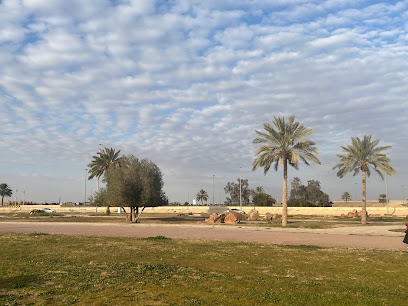
Aja Park
Discover Aja Park, a stunning family-friendly park in Hail, Saudi Arabia, featuring amusement rides, dining options, and beautiful landscapes.
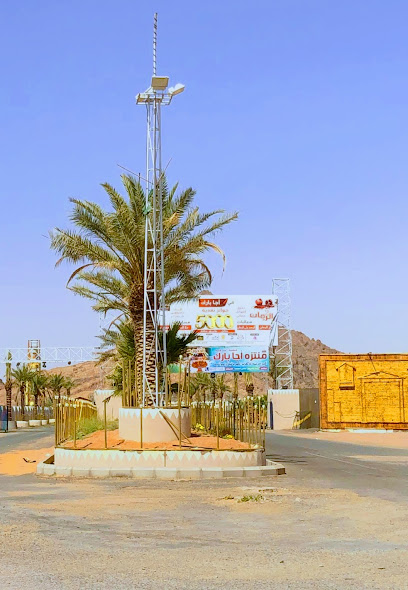
Garden Mall
Experience the best of shopping and dining at Garden Mall in Hail, where local culture meets modern retail.
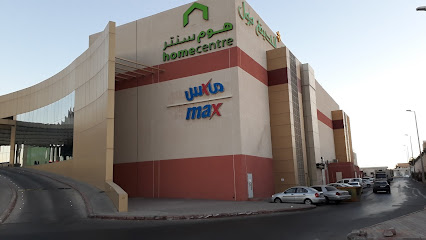
Prince Saud Bin Abdul Mohsen Park
Experience the tranquility of Prince Saud Bin Abdul Mohsen Park in Hail, where lush greenery and vibrant culture create the perfect escape for travelers.
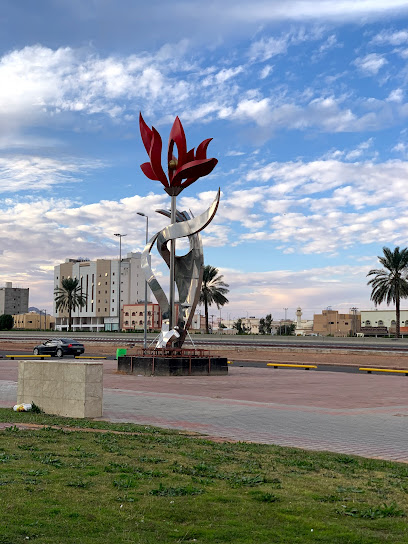
Hail International Airport
Discover the gateway to Hail's fascinating culture and stunning landscapes at Hail International Airport, your entry to Saudi Arabia's rich heritage.
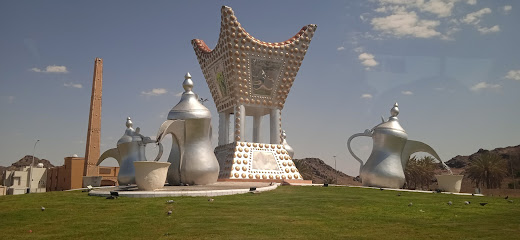
Al Samra Mountain
Explore the breathtaking views and rich culture of Al Samra Mountain, an unforgettable natural landmark in Hail, Saudi Arabia.
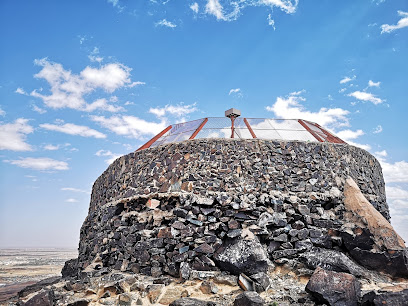
Jarir Bookstore
Discover a treasure trove of books and creativity at Jarir Bookstore in Hail, Saudi Arabia, where literature and art come together.
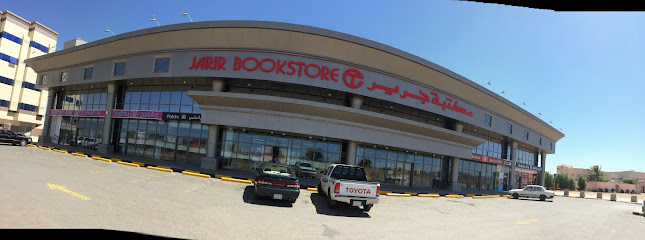
A'arif fort
Discover A'arif Fort, a historical marvel in Hail, Saudi Arabia, where ancient architecture meets breathtaking views and rich cultural heritage.
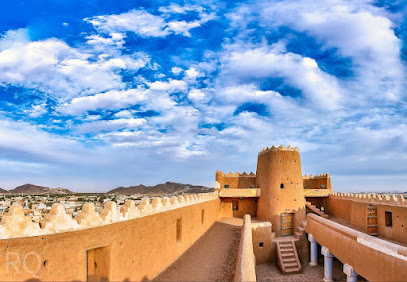
Barzan Grand Mosque
Explore the architectural splendor and cultural significance of Barzan Grand Mosque in Hail, a serene haven for spiritual seekers and travelers.
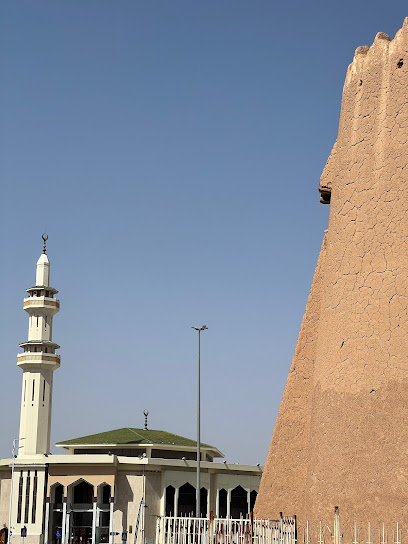
منتزه المغواة الترفيهي للاحتفالات
Explore the serene landscapes and rich culture of Al-Maghwa State Park, a must-visit natural haven in Hail, Saudi Arabia.
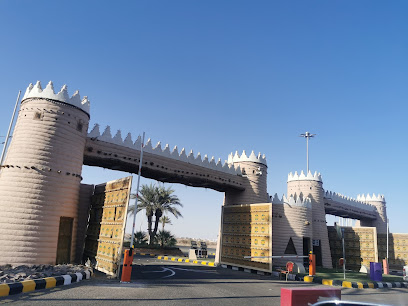
محمية ومنتجع حير عقدة بحائل /عقدة
Explore the عُقْدَة Amusement Center in Hail for family fun, thrilling rides, and unforgettable memories in a vibrant atmosphere.
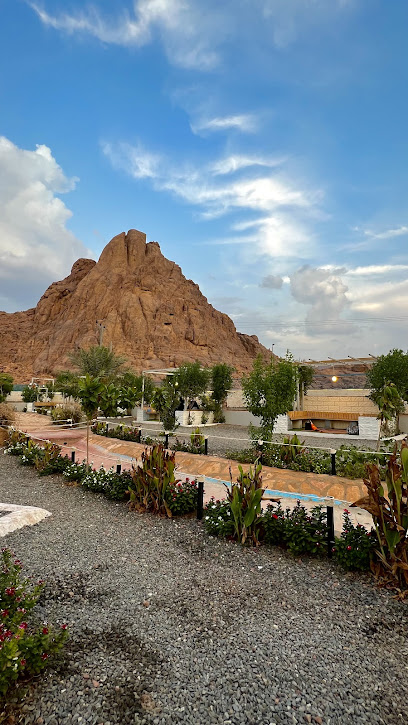
Apartments Desert Rose
Explore the beauty of Hail while enjoying the comfort and convenience of Apartments Desert Rose, your perfect home base for adventure.

Tamyoz aparthotel 2
Discover the charm of Hail at Tamyoz Aparthotel, your cozy retreat offering modern amenities and easy access to local attractions.
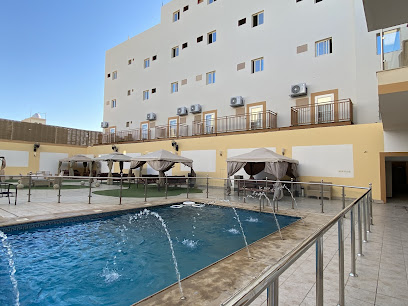
Prince Sultan Park
Explore Prince Sultan Park in Hail, a serene escape filled with lush gardens, scenic paths, and vibrant family-friendly spaces for relaxation and leisure.
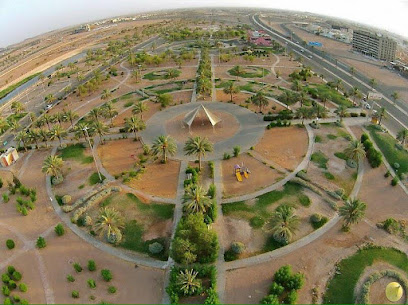
Unmissable attractions to see
Olive Garden
Experience the warmth of Italian hospitality and indulge in classic cuisine at Olive Garden in Hail, a perfect dining spot for travelers.
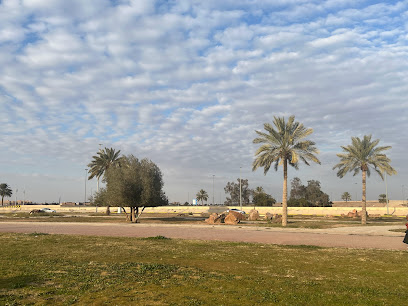
Aja Park
Experience the joy of family fun and adventure at Aja Park in Hail, where thrilling rides meet beautiful green spaces.
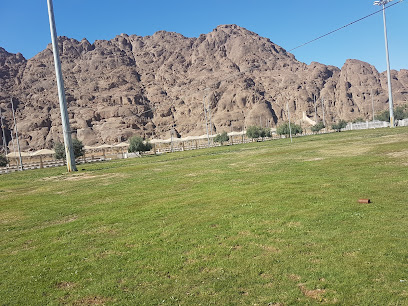
Prince Saud Bin Abdul Mohsen Park
Explore the serene beauty of Prince Saud Bin Abdul Mohsen Park in Hail, a peaceful retreat for tourists seeking relaxation and outdoor activities.
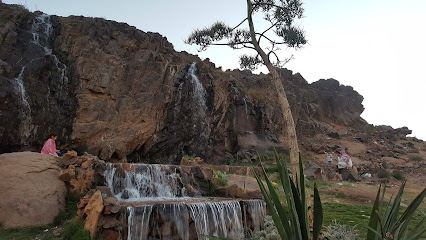
Al Samra Mountain
Explore the breathtaking landscapes and rich cultural heritage of Al Samra Mountain, a must-visit destination for nature lovers and adventure seekers in Hail, Saudi Arabia.
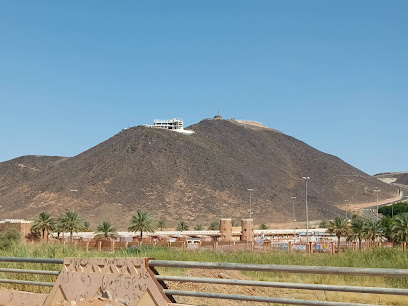
Alsalam
Discover the tranquility of Alsalam Park in Hail, a lush oasis perfect for relaxation, picnics, and family fun amidst nature's beauty.
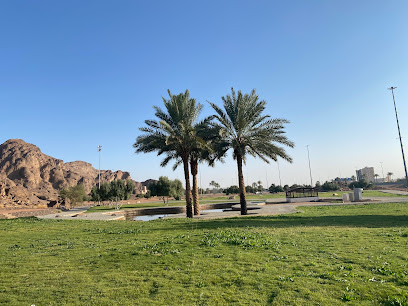
A'arif fort
Discover the enchanting A'arif Fort in Hail, Saudi Arabia, a historical site that showcases the region's rich heritage and stunning architecture.
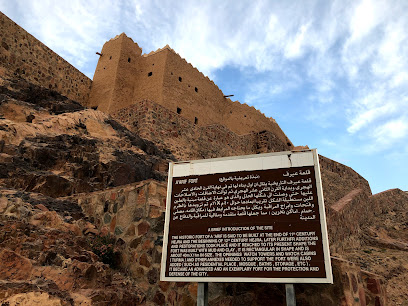
منتزه المغواة الترفيهي للاحتفالات
Discover the beauty of Al-Maghwa State Park in Hail, Saudi Arabia - a perfect blend of nature, adventure, and outdoor fun for all ages.
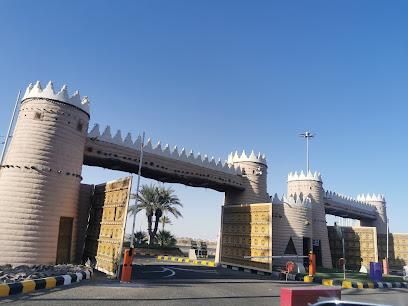
Prince Sultan Park
Discover tranquility at Prince Sultan Park, a beautiful green oasis in Hail, perfect for picnics, strolls, and family gatherings amidst nature's beauty.
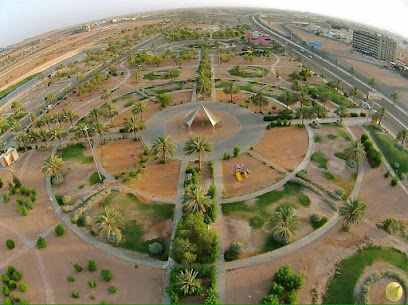
Mashar National Park
Explore the breathtaking landscapes and diverse wildlife at Mashar National Park, a perfect getaway for nature lovers and adventure seekers in Saudi Arabia.
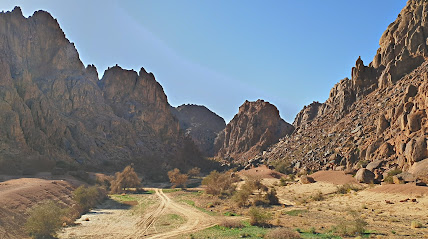
حديقة الزبارة
Explore the serene Al Zibarah Garden, a botanical oasis in Hail, offering a peaceful retreat with diverse flora and tranquil paths for all nature lovers.
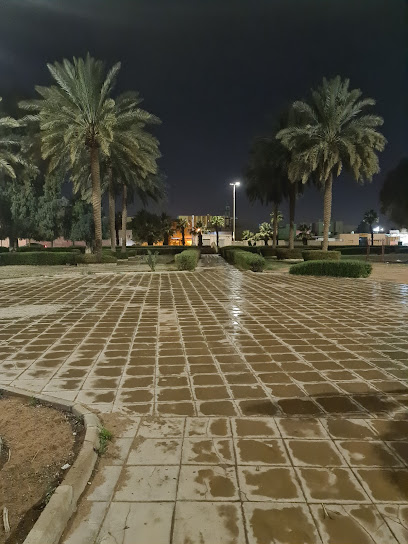
Strawberry Garden Hail
Explore the stunning Strawberry Garden Hail, a delightful tourist attraction in Saudi Arabia, perfect for families and nature lovers seeking fresh experiences.
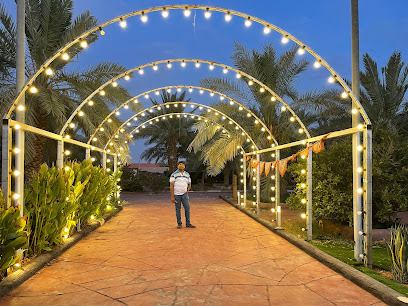
مرصد مشار الفلكي التاريخي
Explore the universe at the Historical Astronomical Observatory in Hail, where science meets history and the stars come alive.
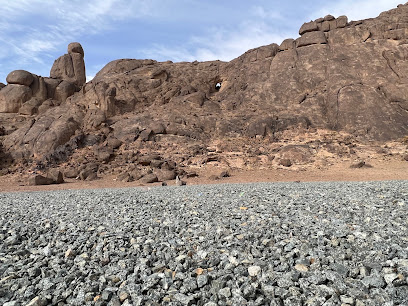
غار المليح
Discover the enchanting Al-Malih Cave in Hail, Saudi Arabia, a geological marvel and a serene escape into nature's wonders.
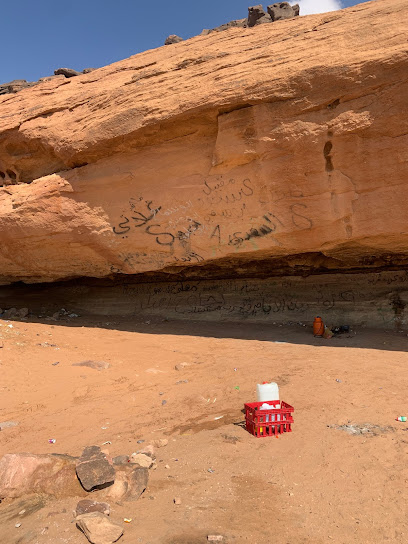
قلعة الزهيرية
Explore the captivating Al-Zahiriya Fortress in Hail, a historical treasure that showcases Saudi Arabia's rich heritage and stunning architecture.
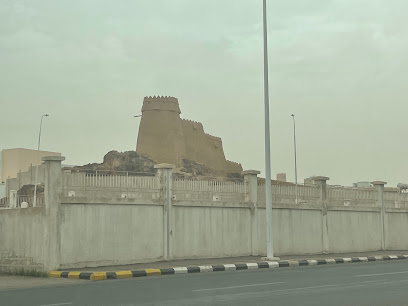
الودي
Explore Al-Wadi in Hail, a mesmerizing tourist attraction rich in natural beauty and cultural heritage for an unforgettable Saudi Arabian adventure.
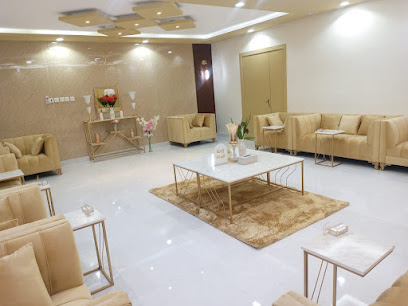
Essential places to dine
Al Turathi Restaurant
Discover the essence of Arabian cuisine at Al Turathi Restaurant in Hail, where authentic flavors meet warm hospitality.
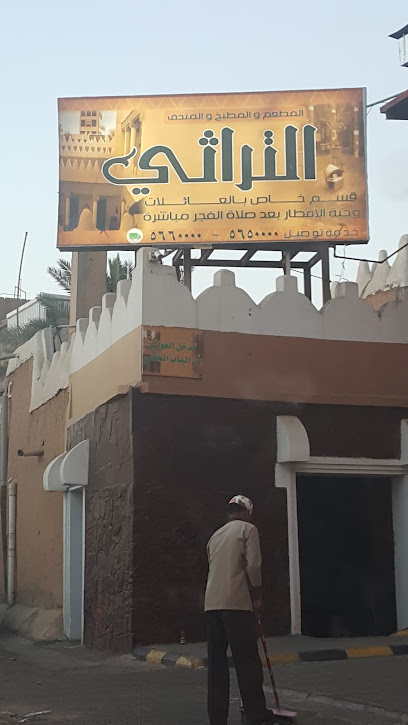
Baharat Restaurant
Experience authentic Indian cuisine at Baharat Restaurant in Hail – where every dish tells a story of rich flavors and tradition.
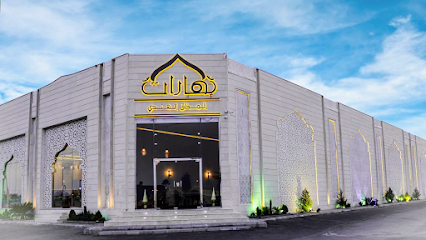
Resto in the Sky
Experience culinary delights at Resto in the Sky with breathtaking views of Hail's landscape—an unforgettable dining adventure awaits!
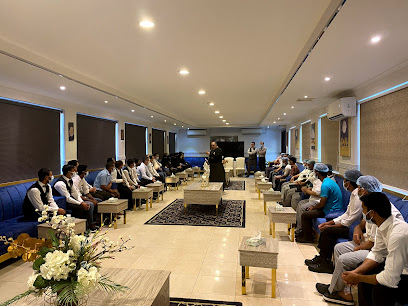
مطعم و كافيه باديلا
Experience authentic flavors at مطعم و كافيه باديلا in Hail - where culinary tradition meets modern dining.
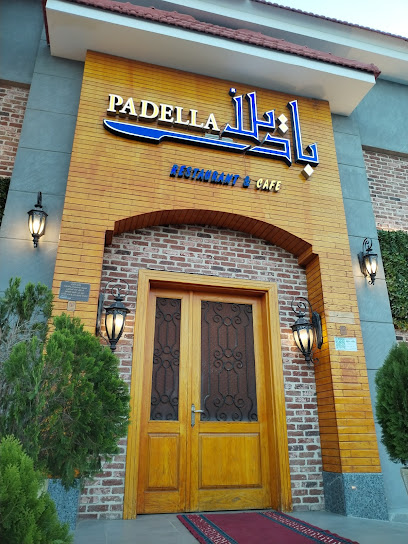
Marsaai
Discover the exquisite flavors of Saudi Arabia at Marsaai, where tradition meets modernity in every bite.
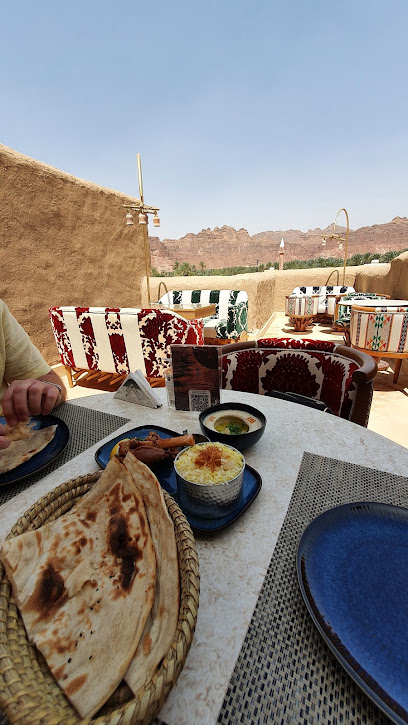
Taj Mahal Restaurant Hail
Experience authentic Indian cuisine at Taj Mahal Restaurant in Hail - where rich flavors meet cultural heritage.
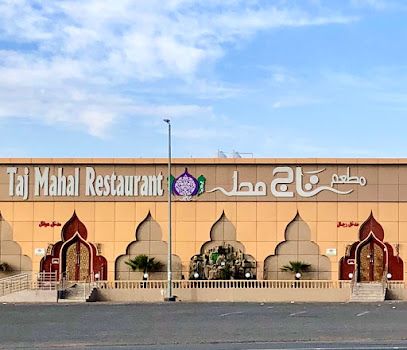
Applebee's
Discover delicious American cuisine at Applebee's in Hail – where flavors meet comfort in an inviting atmosphere.
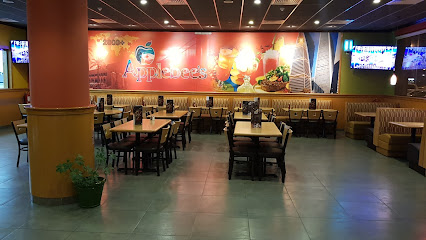
Rajoo Juisine
Experience the rich flavors of authentic Indian cuisine at Rajoo Juisine in Hail - where every dish tells a story.
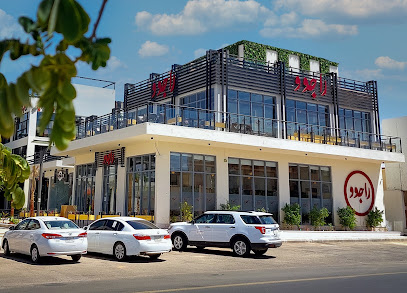
Medhiaf Restaurant
Experience authentic Saudi cuisine at Medhiaf Restaurant in Hail - where flavor meets affordability.
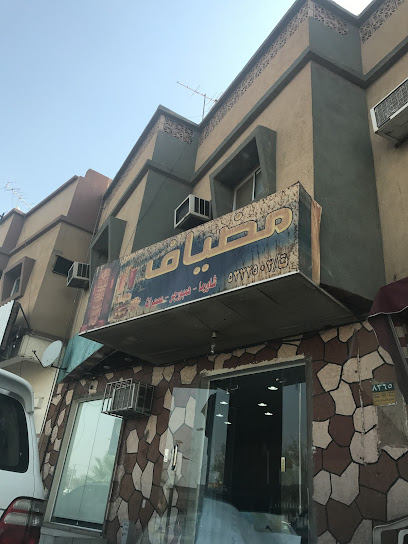
Indian Village Restaurant
Experience authentic Indian flavors at Indian Village Restaurant in Hail - a culinary journey through India's vibrant cuisine awaits.
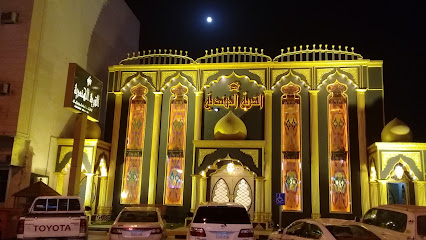
Copper House Restaurant
Savor the rich flavors of Saudi cuisine at Copper House Restaurant in Hail – where tradition meets modern dining.
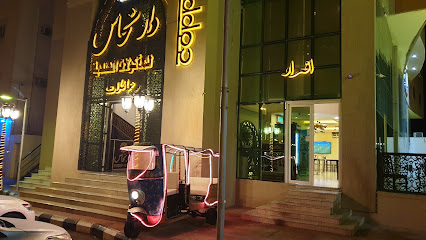
KFC
Savor delicious fried chicken at KFC Hail - your go-to fast food spot in Saudi Arabia offering comfort food favorites.
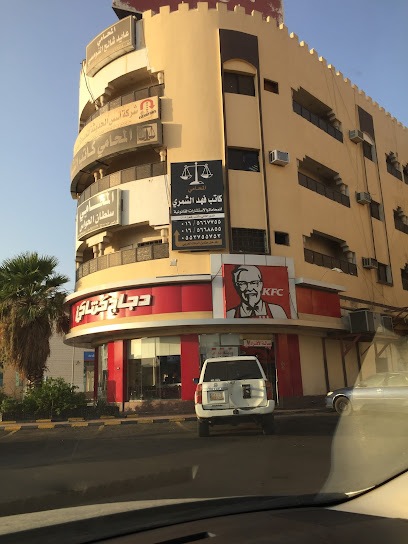
هرفيHerfy
Experience authentic Saudi flavors and international favorites at Herfy in Hail – a delightful culinary destination for every traveler.
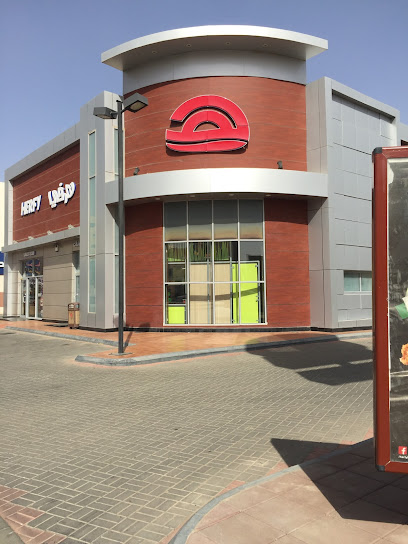
Subway
Discover fresh flavors at Subway in Hail - where every sandwich is made just the way you like it.
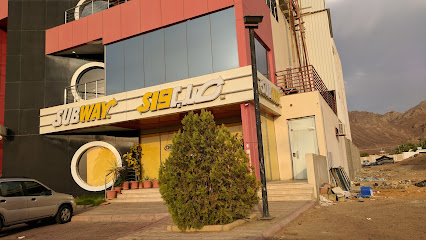
Kushkar كشكار
Experience authentic Saudi flavors and international cuisine at Kushkar, Hail Regional Airport's top dining destination for travelers.
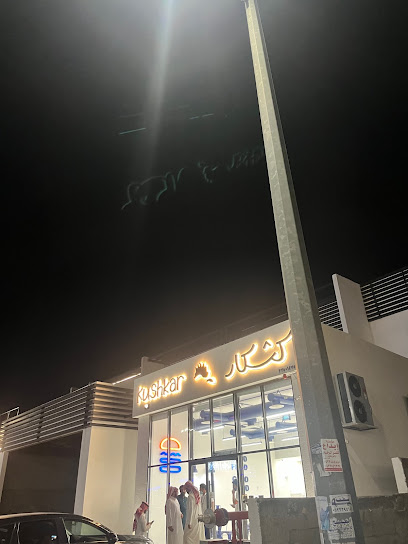
Markets, malls and hidden boutiques
AlOthaim Mall
Explore AlOthaim Mall in Hail for an unforgettable shopping experience filled with diverse brands, delicious dining, and family-friendly entertainment.
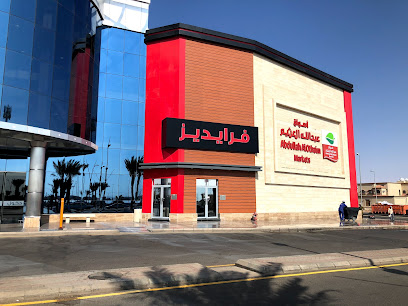
LuLu Hypermarket, Hail
Discover the heart of shopping in Hail at LuLu Hypermarket, where local flavors meet international variety.
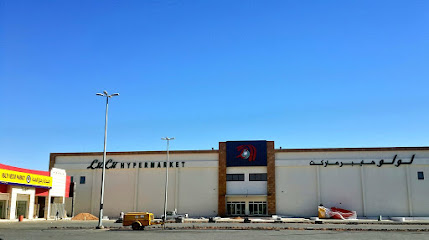
Hail Mall
Explore Hail Mall, the ultimate shopping destination in Saudi Arabia featuring diverse shops, exquisite dining, and exciting entertainment options.
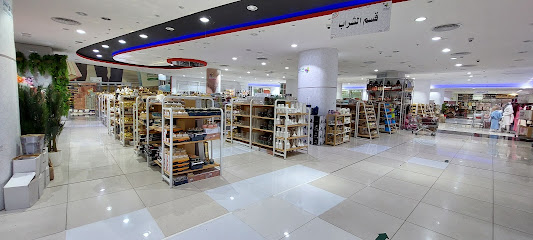
City Flower Hypermarket
Explore the vibrant City Flower Hypermarket in Hail, Saudi Arabia - a cultural shopping experience with fresh produce and unique local goods.
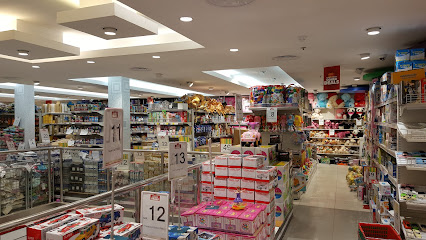
Garden Mall
Explore the vibrant shopping and dining experience at Garden Mall, Hail's premier destination for retail therapy and family fun.
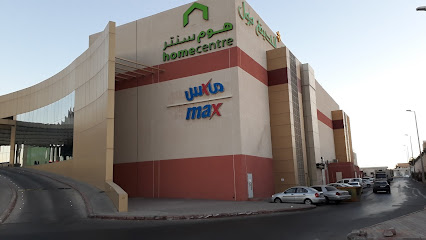
Jarir Bookstore
Discover the ultimate shopping experience at Jarir Bookstore, Hail's leading destination for books, art supplies, and electronics.
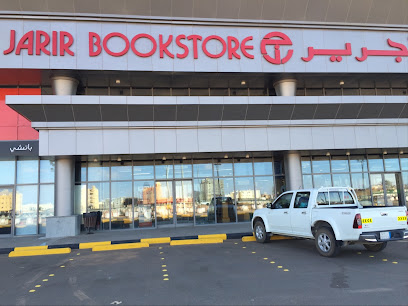
Top Center
Discover Top Center in Hail: A shopping haven with diverse retail, delicious dining, and entertainment options for every traveler.
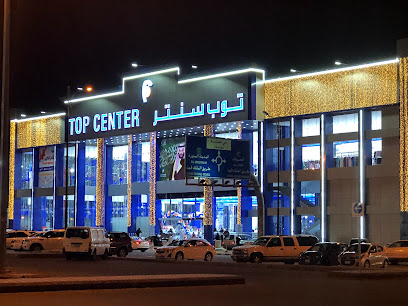
Home Centre
Discover stylish furniture and home decor at Home Centre in Hail, where quality meets affordability for the perfect shopping experience.
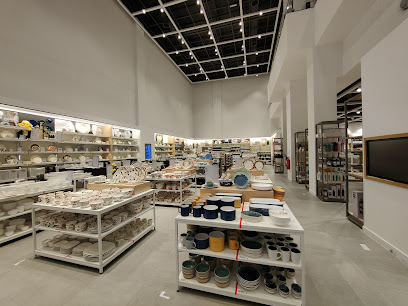
Centrepoint
Discover an exceptional shopping experience at Centrepoint, Hail's premier department store, featuring fashion, beauty, and baby products for all.
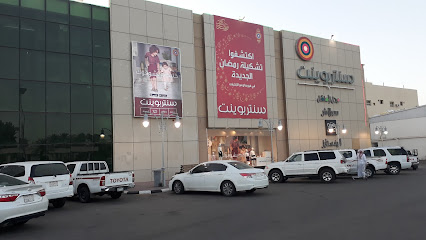
Barzan market
Discover the essence of Hail at Barzan Market, a vibrant hub of culture, crafts, and cuisine in the heart of Saudi Arabia.
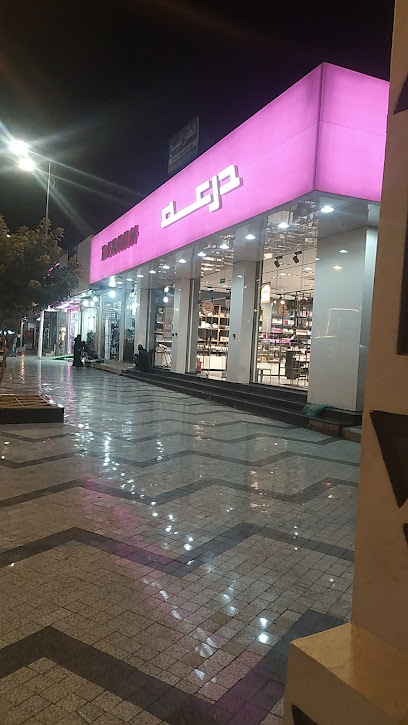
H&M
Explore H&M at Othaim Mall in Hail for trendy and affordable fashion that caters to every style and age group.

THE FACE SHOP ذا فيس شوب
Explore a world of beauty at THE FACE SHOP in Hail, where quality skincare meets vibrant cosmetics in a delightful shopping experience.
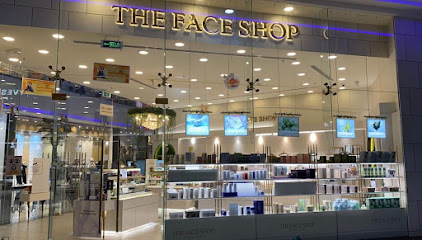
Next
Explore the latest fashion trends at Next in Hail's Othaim Mall, where style meets affordability for every shopper.
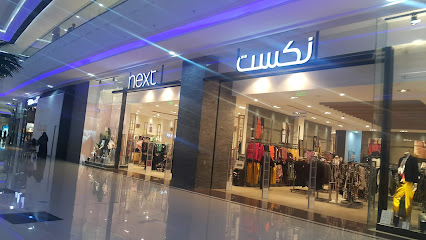
sobuj shop jamain hail اشترك - beIN كيفية الاشتراك - Get beIN
Discover the ultimate electronics shopping experience at Sobuj Shop in Hail, showcasing the latest gadgets and unbeatable customer service.
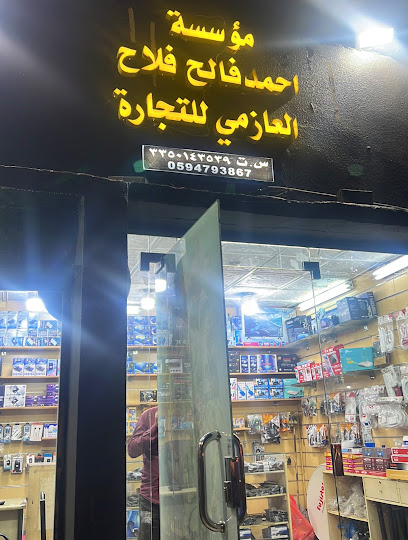
متجر حائل
Discover the charm of Hail at متجر حائل, your go-to destination for unique souvenirs and traditional handicrafts that celebrate local culture.
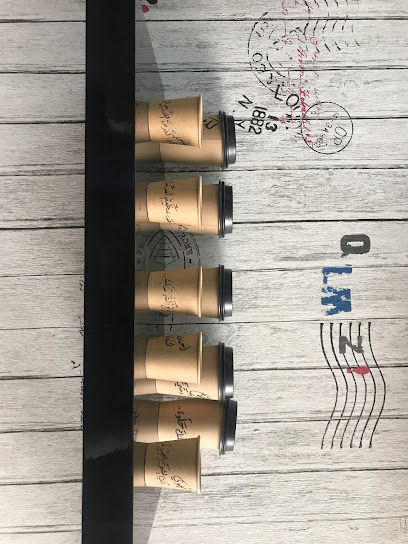
Essential bars & hidden hideouts
Al Turathi Restaurant
Discover the flavors of Saudi Arabia at Al Turathi Restaurant, where tradition meets modern cuisine in the heart of Hail.
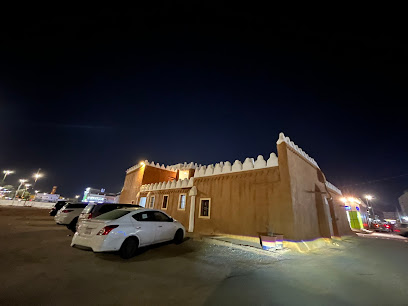
Marsaai
Experience the essence of fine dining at Marsaai in Hail, where exquisite flavors and a welcoming atmosphere come together for an unforgettable meal.
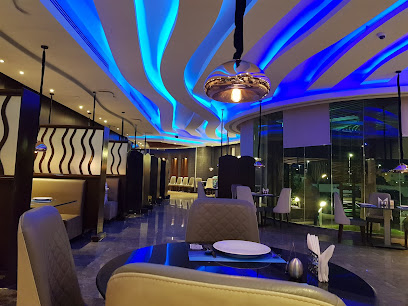
THE COAST Lounge
Discover the inviting atmosphere and diverse menu at The Coast Lounge, a top destination in Hail for culinary delights and relaxation.
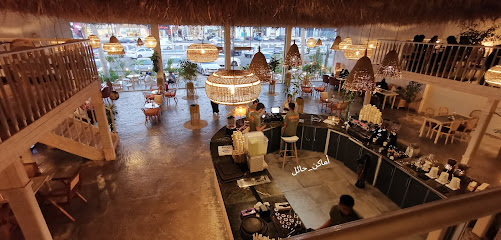
Alraqi restaurant
Discover authentic Saudi cuisine at Alraqi Restaurant in Hail, a perfect blend of tradition and modern dining experiences.
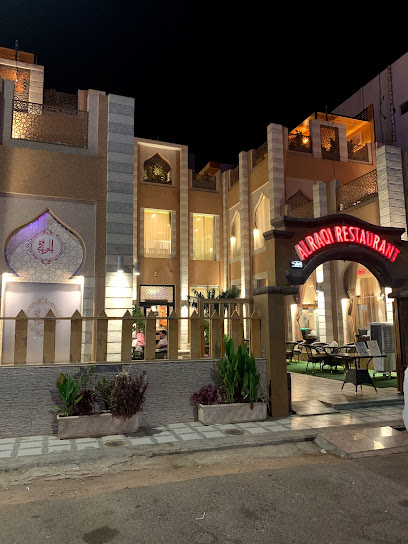
Medhiaf Restaurant
Discover the flavors of Hail at Medhiaf Restaurant, where delicious local dishes meet international favorites in a welcoming atmosphere.
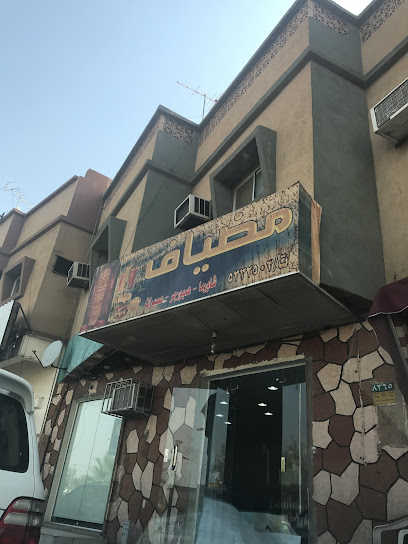
REVE BURGER
Discover the best gourmet burgers in Hail at REVE BURGER, where quality meets flavor in a cozy dining environment.
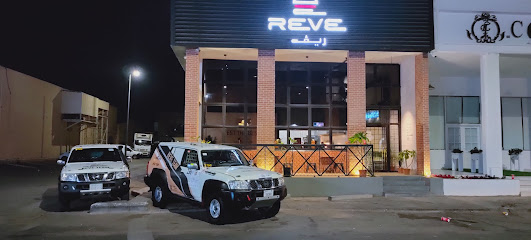
Viola Cafe
Savor the rich flavors of Hail at Viola Cafe, a delightful restaurant and coffee shop offering a unique culinary experience.
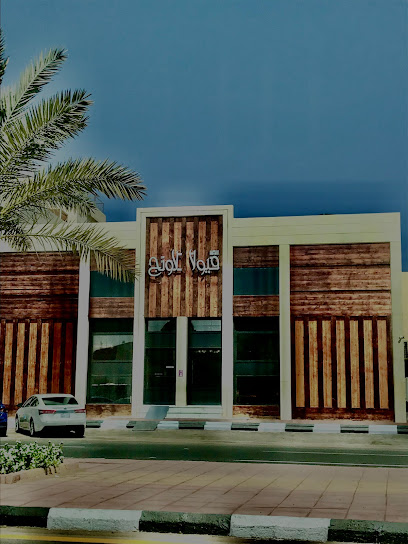
مشويات القلعة
Savor the authentic taste of Saudi Arabia at مشويات القلعة, where grilled delicacies meet warm hospitality in the heart of Hail.
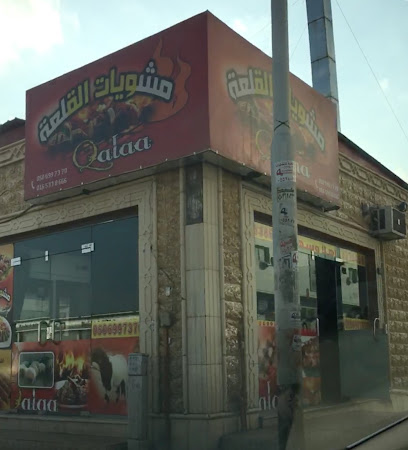
Tam Cafe
Discover Tam Cafe in Hail - a cozy coffee haven serving delicious brews and light bites amidst a welcoming atmosphere.
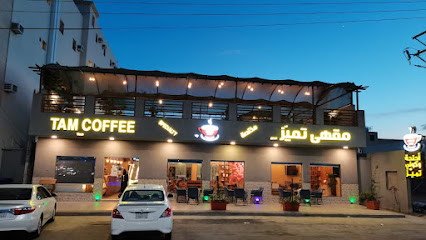
مطاعم النجوم Stars Restaurant Hail
Discover the culinary treasures of Hail at Stars Restaurant, where local flavors meet a cozy atmosphere for an unforgettable dining experience.
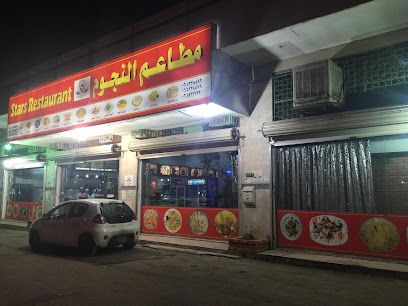
مقهى ريد فوكس الثعلب الاحمر / شيشة وقهوة
Discover a unique blend of coffee, culture, and community at Red Fox Café in Hail, a perfect spot for relaxation and socializing.
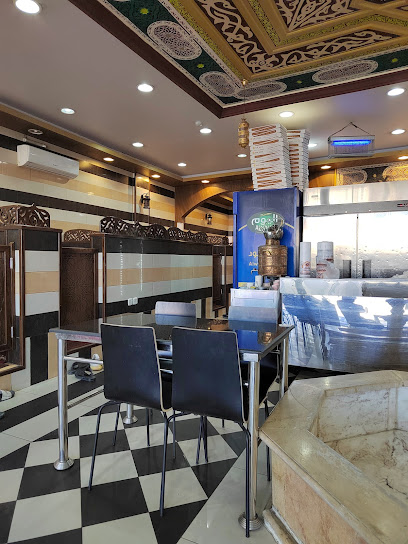
Thalassery Resturant
Experience the rich flavors of Indian cuisine at Thalassery Restaurant in Hail, where authentic dishes and warm hospitality await every guest.
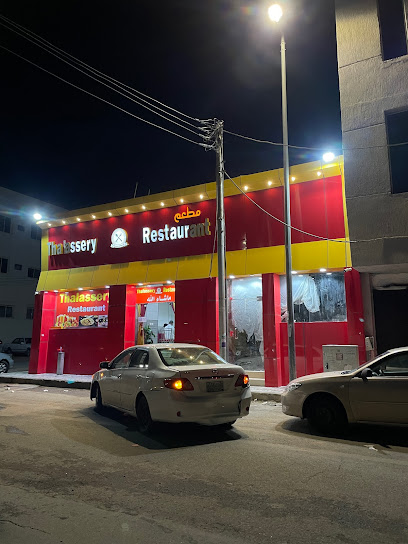
ARAFA RESTAURANT
Discover the rich flavors of local cuisine at ARAFA RESTAURANT in Hail – a culinary experience not to be missed!
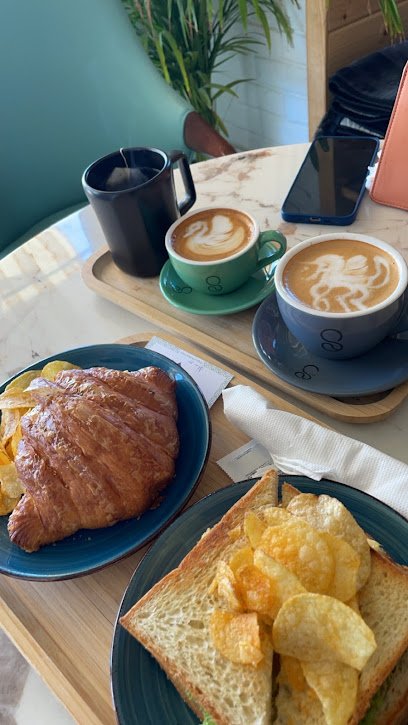
Samra
Experience the best of Hail's culinary scene at Samra, where delicious hamburgers and a welcoming atmosphere await.
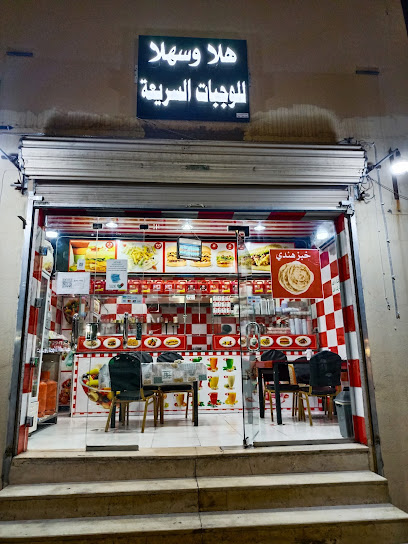
Local Phrases
-
- HelloMarhaba
[Mar-ha-ba] - GoodbyeMa'a salama
[Ma-a sa-la-ma] - YesNa'am
[Na-am] - NoLa
[La] - Please/You're welcomeMin fadlik
[Min fad-lik] - Thank youShukran
[Shuk-ran] - Excuse me/SorryAfsah
[Af-sah] - How are you?Kaif halak?
[Ka-if ha-lak] - Fine. And you?Tamam. Wa ant?
[Ta-mam. Wa ant] - Do you speak English?Hal tatakallam al-ingliziya?
[Hal ta-ta-kal-lam al-ing-liz-i-ya] - I don't understandAna la afham
[An-a la af-ham]
- HelloMarhaba
-
- I'd like to see the menu, pleaseOreed an ara alqaima, min fadlik
[O-reed an a-ra al-qai-ma, min fad-lik] - I don't eat meatAna la aakol lahama
[An-a la a-kol la-ha-ma] - Cheers!Fi sahetak!
[Fi sa-he-tak] - I would like to pay, pleaseOreed an adfa, min fadlik
[O-reed an ad-fa, min fad-lik]
- I'd like to see the menu, pleaseOreed an ara alqaima, min fadlik
-
- Help!Musaid!
[Mu-said] - Go away!Ijai!
[I-jai] - Call the Police!Itsal bilshurta!
[It-sal bil-shur-ta] - Call a doctor!Itsal biltabib!
[It-sal bil-ta-bib] - I'm lostAnaa daa'i
[An-aa daa-i] - I'm illAna mareed
[An-a ma-reed]
- Help!Musaid!
-
- I'd like to buy...Oreed an ashtar...
[O-reed an ash-tar] - I'm just lookingAna faqat atadabbor
[An-a fa-qat a-ta-dab-bor] - How much is it?Kam hatha?
[Kam ha-tha] - That's too expensiveHatha ghali jiddan
[Ha-tha gha-li jid-dan] - Can you lower the price?Hal tastatia tasfiyat althaman?
[Hal tas-ta-ti-a tas-fi-yat al-tha-man]
- I'd like to buy...Oreed an ashtar...
-
- What time is it?Kam alsaa?
[Kam al-saa] - It's one o'clockAlwahida
[Al-wa-hi-da] - Half past (10)Nisf ashr
[Nisf ash-r] - MorningSabaah
[Sa-baah] - AfternoonDhuhran
[Dhu-hran] - EveningMasaa
[Ma-saa] - YesterdayAmis
[A-mis] - TodayAlyawm
[Al-yawm] - TomorrowGhadan
[Gha-dan] - 1Wahid
[Wa-hid] - 2Ithnayn
[Ith-nayn] - 3Thalatha
[Tha-la-tha] - 4Arbaa
[Ar-baa] - 5Khamsa
[Kham-sa] - 6Sitta
[Sit-ta] - 7Sabaa
[Sa-baa] - 8Thamania
[Tha-ma-ni-a] - 9Tisaa
[Ti-saa] - 10Ashara
[A-sha-ra]
- What time is it?Kam alsaa?
-
- Where's a/the...?Wayn al...
[Wayn al] - What's the address?Shuwa alwasia?
[Shu-wa al-wa-si-a] - Can you show me (on the map)?Hal tastati' an turiyani (alakhariyra)?
[Hal tas-ta-ti an tu-ri-ya-ni (al-akh-a-riy-ra)] - When's the next (bus)?Mata huwa alqaadim (bas)?
[Ma-ta hu-wa al-qa-dim (bas)] - A ticket (to ....)Tathkira (ila ....)
[Ta-th-ki-ra (i-la ....)]
- Where's a/the...?Wayn al...
History of Hail
-
The region of Hail has been inhabited since ancient times, with archaeological findings suggesting human activity dating back to the Paleolithic era. Rock carvings and ancient artifacts found in the area indicate that it was a significant center for early human settlement and trade in the Arabian Peninsula.
-
Hail is associated with the Thamudic civilization, an ancient people who lived in the northwestern part of the Arabian Peninsula. The Thamud were known for their rock-cut architecture and inscriptions, many of which can still be seen in the mountains surrounding Hail. These inscriptions provide valuable insights into the language, culture, and daily life of the Thamudic people.
-
During the 7th century, Hail became part of the Rashidun Caliphate, marking the region's integration into the rapidly expanding Islamic world. The caliphate's influence brought significant cultural and religious changes, and Hail became an important stop for pilgrims traveling to the holy cities of Mecca and Medina.
-
In the 19th century, Hail rose to prominence under the rule of the Al Rashid family, who established the Emirate of Jabal Shammar. The emirate became a powerful state in central Arabia, with Hail as its capital. Under the leadership of rulers like Muhammad ibn Abdullah Al Rashid and his successors, the region experienced a period of political stability, economic prosperity, and cultural development.
-
One of the most significant historical events in Hail was the Battle of Hail in 1921, which marked the end of the Emirate of Jabal Shammar. The battle was fought between the forces of the Al Rashid family and the Saudi forces led by Abdulaziz Ibn Saud. The defeat of the Al Rashid family led to the incorporation of Hail into the Kingdom of Saudi Arabia, solidifying Ibn Saud's control over the region.
-
Hail is known for its rich cultural heritage, which is celebrated through various festivals and events. The Hail International Rally, an annual motorsport event, attracts participants and spectators from around the world. The city's traditional crafts, such as weaving and pottery, are also showcased during cultural festivals, highlighting the unique artistic traditions of the region.
-
In recent years, Hail has undergone significant modernization and development, transforming into a vibrant urban center. The city boasts modern infrastructure, educational institutions, and healthcare facilities, while still preserving its historical landmarks and cultural identity. Hail's strategic location and rich history continue to make it an important hub in Saudi Arabia.
Hail Essentials
-
Hail is located in the north-central region of Saudi Arabia. The nearest airport is Hail Regional Airport (HAS), which has domestic flights from major cities such as Riyadh, Jeddah, and Dammam. International travelers can fly into King Khalid International Airport (RUH) in Riyadh and then take a domestic flight to Hail. Alternatively, you can travel by bus or car from Riyadh, which takes approximately 7-8 hours by road.
-
Hail has a network of taxis and rental car services available for getting around the city. Public buses are also available but are less frequent. For shorter distances, you can use ride-hailing apps like Uber or Careem. Exploring on foot is possible in the central parts of the city, but for visiting historical sites and attractions outside the city center, renting a car is recommended.
-
The official currency in Saudi Arabia is the Saudi Riyal (SAR). Credit and debit cards are widely accepted in hotels, restaurants, and larger shops. However, it is advisable to carry some cash for smaller establishments and markets. ATMs are readily available throughout Hail, so withdrawing cash should not be an issue.
-
Hail is generally a safe city for tourists. However, it is always wise to take standard safety precautions. Avoid walking alone at night in unfamiliar areas and keep an eye on your belongings in crowded places. There are no specific high-crime areas targeting tourists, but it is best to stay vigilant and aware of your surroundings.
-
In case of emergency, dial 999 for police, 997 for ambulance, and 998 for fire services. Hail has medical facilities and pharmacies where you can get assistance for health issues. It is advisable to have travel insurance that covers medical emergencies. Most hospitals in Hail have staff who speak English.
-
Fashion: Do dress modestly. Men should avoid wearing shorts in public places, and women should wear loose-fitting clothes that cover their arms and legs. A headscarf is required for women in public. Religion: Do respect Islamic customs and traditions. Avoid public displays of affection and refrain from eating or drinking in public during Ramadan. Public Transport: Do be respectful to fellow passengers. Eating and drinking are generally not allowed on public transport. Greetings: Do greet people with a handshake. Use the right hand for giving and receiving items. Eating & Drinking: Do try local foods, but don't use your left hand for eating or passing food. It is considered impolite.
-
To experience Hail like a local, visit the traditional souks (markets) where you can buy local crafts and spices. Engage with locals; they are often friendly and willing to share stories about their culture and history. Don’t miss the annual Hail International Rally, a major event attracting participants from around the world. For a unique experience, visit the A'arif Fort and the Qishlah Palace to delve into the rich history of the region.
Trending Landmark in Hail
-
Millennium Hotel Hail
-
Olive Garden
-
Aja Park
-
Garden Mall
-
Prince Saud Bin Abdul Mohsen Park
-
Hail International Airport
-
Al Samra Mountain
-
Jarir Bookstore
-
A'arif fort
-
Barzan Grand Mosque
-
منتزه المغواة الترفيهي للاحتفالات
-
محمية ومنتجع حير عقدة بحائل /عقدة
-
Apartments Desert Rose
-
Tamyoz aparthotel 2
-
Prince Sultan Park
Nearby Cities to Hail
-
Things To Do in Buraidah
-
Things To Do in Sakakah
-
Things To Do in Al Ula
-
Things To Do in Arar
-
Things To Do in Medina
-
Things To Do in Tabuk
-
Things To Do in Yanbu
-
Things To Do in Najaf
-
Things To Do in Riyadh
-
Things To Do in Karbala
-
Things To Do in Jahra
-
Things To Do in Farwaniya
-
Things To Do in Kuwait City
-
Things To Do in Ahmadi
-
Things To Do in Hawalli









